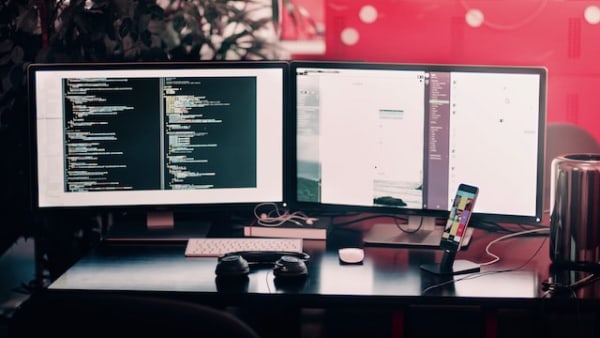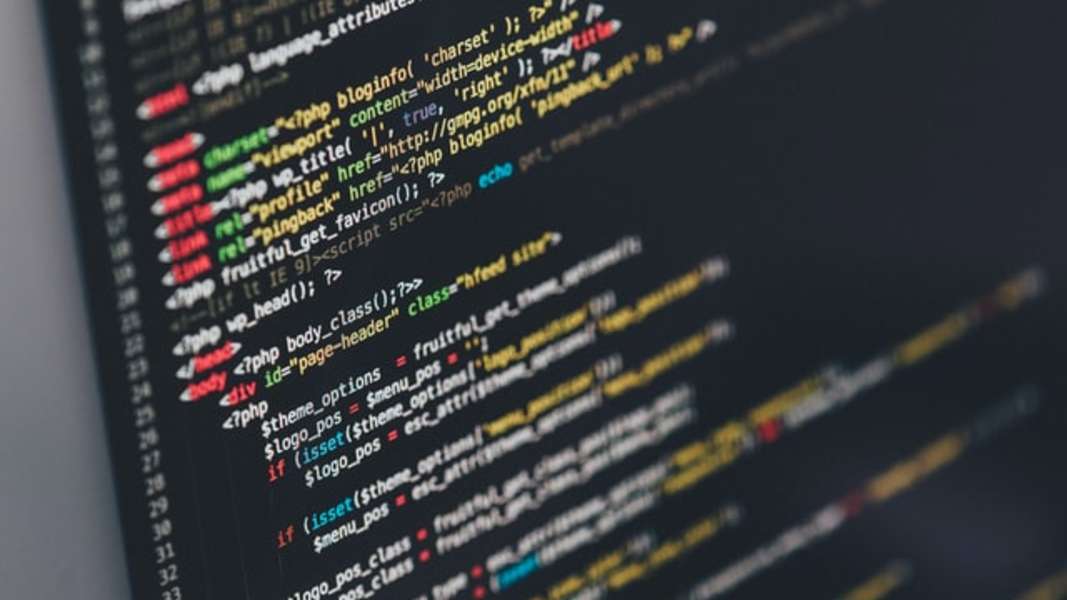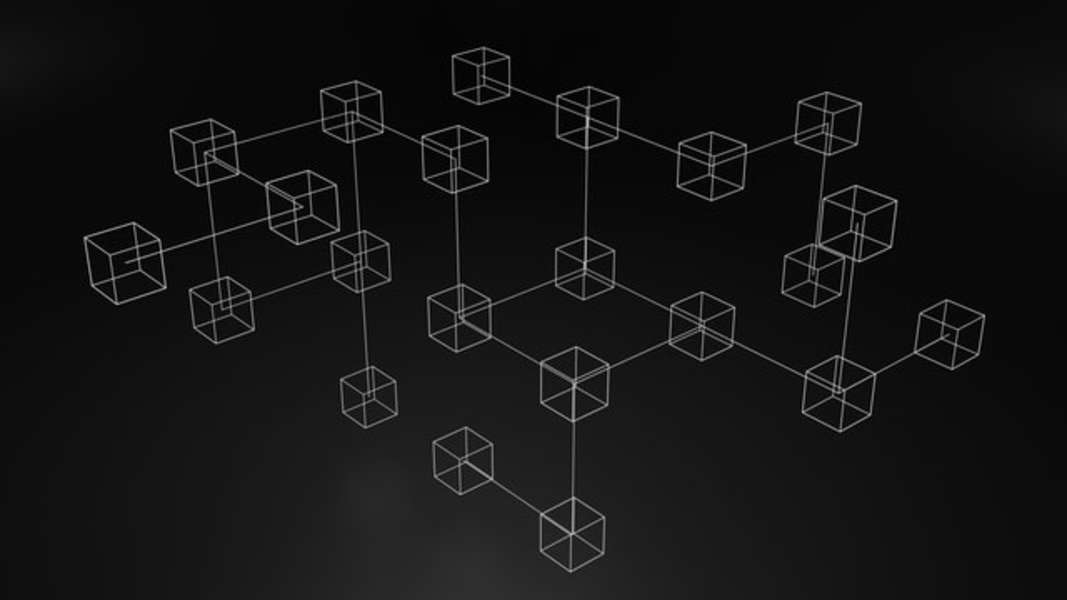
How To Hire A Blockchain Developer
August 11, 2022

A blockchain developer is responsible for writing applications and may also be involved in feature updates and ongoing support.
Due to the nature of blockchain, developers often create applications to be integrated into platforms handling sensitive data.
Prominent platforms blockchain developers work on include cryptocurrency exchanges, payment processing, IoT operating systems, digital voting systems, and supply chain and logistics monitoring.
This article will cover the responsibilities of a blockchain developer, review the skills and abilities needed for the role and take a look at the best pre-employment soft skills and aptitude tests to incorporate into your recruitment process.
Pre-employment testing can be decisive in ensuring you select the best candidate for the role from within your talent pool, as the insight they provide allows you to make objective hiring decisions with increased effectiveness.
What should a blockchain developer be able to do?
A blockchain developer works within a company's engineering team to develop and maintain applications. Their role involves seeing applications from the concept stage, through design, development and testing to release - and then through new feature releases and ongoing support and testing.
Blockchain developers need an expert grasp of blockchain technology and a good problem-solving ability, as it is down to them to see the opportunities for blockchain technology to meet challenges and to create efficiencies.
Core blockchain developers are responsible for developing and maintaining the architecture of blockchain systems. They work on the functionality of the network and manage its protocols - including those for security.
Blockchain software developers have a different role - they design, build and maintain applications to be integrated into blockchain platforms.
A blockchain developer's tasks include:
- To determine a client's expectations and needs regarding application and platform functionality.
- Evaluate new blockchain technology and explore opportunities to apply this to upgrade existing platforms.
- Develop new blockchain applications (front-end and back-end).
- To write clean and effective code.
- To assess threats (e.g. unprotected keys, untested code).
Skills to look for in a blockchain developer
A blockchain developer needs to possess key skills to be successful in their role. We recommend adding pre-employment testing to your hiring process to help illuminate the presence of the following skills:
Oral communication: app developers often work as part of a team, which means good communication skills will help them to integrate into the working environment and perform their tasks effectively. Blockchain developers need to be able to convey their ideas for application concepts and the functional detail of an application clearly to their colleagues, so they can meaningfully contribute to a collaborative development process that inspires innovation.
Attention to detail: coding is detail oriented, as code needs to be concise and free from errors. Attention to detail helps blockchain developers ensure their applications meet the client's specifications and run smoothly without preventable issues.
Software skills: it goes without saying, blockchain developers need an excellent knowledge of software as they work with designing, developing and maintaining it on a daily basis. Specific skills needed to work with blockchain include a strong grasp of cryptography and security protocols, decentralized systems and peer-to-peer networking, and data structures and algorithms.
Design skills: good user interface (UI) design skills come in handy for blockchain developers, as they need to develop applications that are functional, intuitive and easily integrated.
Programming skills: blockchain developers need a comprehensive grasp of the programming language(s) they will be working with. These may include C++, C#, Golang, JavaScript, Python, Solidity, Java and Ruby. The ability to rapidly write clean and simple code will increase their success in developing innovative applications to meet client needs.
Useful abilities for a blockchain developer
Alongside key skills, blockchain developers need to possess certain abilities. We recommend looking for the presence of the following abilities when hiring a blockchain developer:
Problem-solving: designing and developing applications is a pure form of problem-solving. The application needs to address the challenges currently being experienced and increase the effectiveness and efficiency of the process. Developers need to find the best way of meeting client needs whilst balancing aspects such as project duration and cost with functionality and quality.
Problem sensitivity and social perceptiveness: these abilities may come in useful to understand the client and end-user needs involved in a project. A rounded understanding of the issue being addressed and an ability to empathize with application users help blockchain developers to anticipate potential issues and identify developing ones. This is vital to keep needs met and the product functional and fit for its operating environment.
Flexibility and adaptation: flexibility and the ability to adapt the course of action, regardless of the development stage, is a key skill for blockchain developers. When designing an application and integrating it into an existing system, developers are bound to come up against unanticipated challenges. Some aspects of the technology may not work as intended and need adjusting. The client may also revise their own needs regarding functionality or timeline.
Which soft skills tests could I use to hire a blockchain developer?
Pre-employment tests are often equated with technical or aptitude testing, but they can also be used to great effect to measure the presence of key soft skills within your talent pool. Your chosen candidate needs to be well-rounded and a good fit in terms of both intellect and personality.
We recommend considering the following soft skills tests to assess whether a candidate is a good fit for your company:
Teamwork: as blockchain developers usually work as part of a team, evaluating a prospective employee's ability to work collaboratively is worthwhile. A teamwork test features theoretical team working scenarios and requires candidates to answer a series of multiple-choice questions - related to aspects such as the best next step to take in a given situation or how to effectively manage the team dynamic portrayed.
Interpersonal skills: if you want to test communication, social interaction and capacity for teamwork, an interpersonal skills test is a good catch-all. The test involves a series of hypothetical scenarios and asks prospective employees to select the most or least effective way to deal with the issue depicted.
As with the teamwork test, the questions are multiple-choice. In a collaborative environment, such as that within development teams, social skills such as empathy, emotional awareness and conflict resolution are crucial.
Adaptability: it is inevitable that there will be unexpected issues to overcome in the application development process. An adaptability test presents theoretical scenarios and requires candidates to select the course of action that most closely resembles what their own reaction would be.
The test gives insight into how well your candidate pool can cope with pressures and successfully adapt to changing contexts. For example, an adjusted delivery timeline, an amended product brief, or changing operating parameters on a wider scale.
Time management: blockchain developers will need to work effectively to project deadlines, therefore good time management is a valuable skill to possess. A time management test explores whether a candidate possesses the time awareness and organizational skills needed to deliver quality work on time.
Communication: communication is a vital skill for blockchain developers - they need to be able to clearly convey their vision for the application, converse effectively for team working purposes (across departments and disciplines) and may also update clients on development progress. A communications skills test gives insight into which individuals within your talent pool have the communication skills required.
Which technical or aptitude tests could I use to hire a blockchain developer?
Pre-employment testing should cover technical skills and aptitude, as well as the soft skills explored above. Setting a rounded suite of tests will help to give a comprehensive insight into your candidates' skills and potential.
Consider embedding the following tests in your hiring process for a blockchain developer:
Error checking: an error checking test asks your candidates to compare at least two data sets and identify any discrepancies (for a blockchain developer, the test could involve comparing lines of code). It is important that blockchain developers have an eye for detail, as they need to write error-free code so that their applications run effectively and without issues.
Programming language: top-notch programming skills are essential for a blockchain developer. To ensure your prospective employees have an excellent grasp of the programming language you require, set them a programming language test. These tests ask candidates about the key concepts and elements of the language - whether C#, C++, JavaScript, Python, Golang, Solidity, Java or Ruby - and ensure their knowledge is up to scratch.
Verbal reasoning: we've already mentioned how collaboration and communication skills are important for blockchain developers - a verbal reasoning test can help you assess the presence of these skills.
A verbal reasoning test assesses the ability to understand, analyze and interpret written passages. Candidates are asked to review statements related to the content of the passages and deduce whether these are 'true', 'false', or if they 'cannot say' based on the information given.
Logical reasoning: blockchain developers need to be good problem solvers - able to design and develop applications that improve functionality or user experience and ultimately meet the client's needs. A logical reasoning test assesses problem-solving ability by presenting multiple sets of patterns involving shapes and symbols. Candidates are required to deduce the rules governing each pattern and select the next figure in the sequence from multiple-choice options.
Our recommended test battery for a blockchain developer
Pre-employment testing increases the efficiency and effectiveness of a hiring process, providing insight that ensures the most capable candidate - across soft skills, abilities and knowledge - is hired for the role.
We suggest, at a minimum, that you consider using the following aptitude and skills tests within your recruitment process:
Programming test: this is an essential test for a blockchain developer. Comprehensive knowledge of the required programming language is one of the top requirements for a role of this kind, so use a programming language test to test your candidates' grasp of the operations and functions they need to be comfortable with.
Logical reasoning test: problem-solving is embedded into a blockchain developer's job role. They code applications to improve blockchain platforms - solving existing problems and improving function. They also need to navigate any changes to the production brief or context during the project. Assess your prospective employees' lateral thinking and problem-solving skills through a logical reasoning test.
Error checking test: you'll want to know your blockchain developer can write precise, high-quality code. An error checking test ensures your candidates are detail oriented and can identify (and therefore fix) any errors within an application's code.
View oursoftware developer and web developer testing guides to find out more about using pre-employment skills tests within your recruitment process.
Boost your hiring power.
Start using Neuroworx today.
Talk is cheap. We offer a 14-day free trial so you can see our platform for yourselves.
Try for free




